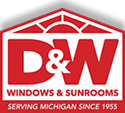Keep door type, size, and material in mind while looking for the ideal patio doors for your house. These are all aspects that can impact energy efficiency, security, and installation method.
Type
Sliding doors and French doors are the two most common types of glass patio doors. Multislide and bifold options are also available, although they are less popular. They are differentiated by the way in which they open and close, as well as the size of the opening they provide.
- Sliding patio doors are enclosed in a metal frame that is secured to the rough studs of the entryway. The door slides open and closes on a track on the bottom and top of the frame. One side of the door is usually fixed, while the other slides along the track.
- French doors are often sold in pairs and can be installed on opposing sides of the doorframe. When closed, the doors meet in the middle, but they don’t need center support when open, so access is considerably wider than with sliding doors. However, some French doors have one fixed door and one opening door, giving them the appearance of a normal sliding patio door.
- Multislide doors are a type of sliding door that are commonly used in hotels and other public buildings. Manufacturers essentially add one or more more doors to the basic sliding-door style. Except for a single fixed pane, all of the doors may slide open and closed. These doors, on the other hand, are typically far too big for a residential home.
- Bifold patio doors, like sliding doors, are mounted on a track, but instead of one moving door sliding in behind a fixed door, bifold models pivot in the track. Both doors open to the side and stack accordion-style, providing a wider entrance than a typical sliding door. Because these doors are unusual, they may be difficult to locate and install.
Material
Although most patio doors feature glass panes, the frame may be made of a variety of materials such as wood, vinyl, aluminum, steel, and fiberglass.
- Wood is attractive, low-maintenance, and long-lasting. However, if exposed to frequent temperature changes and high levels of humidity and precipitation, wood can be prone to water damage and swelling over time.
- Vinyl is a lightweight material with a strong resilience to rapid temperature changes that is intended for energy efficiency. Vinyl doors are less costly than wood, aluminum, steel, and fiberglass doors, but they are not as durable. If it is hit, bumped, kicked, or knocked into, it is more vulnerable to damage.
- Aluminum is a solid, durable, and low-maintenance material. It’s corrosion- and rust-resistant, as well as lightweight, making it perfect for sliding doors. Remember that metal is a poor insulator, so too much aluminum in a patio door might lower the energy rating and perhaps raise your heating and cooling expenses.
- Steel has a similar energy efficiency to aluminum, but it is the most durable alternative for a patio door. It can tolerate harsh weather and temperature changes, although users may need to paint steel patio doors and doorframes on a regular basis to keep them from rusting.
- Fiberglass is a lightweight, energy-efficient material that is less durable than wood, metal, and steel. It won’t warp or fade in extreme weather or changes in temperature.
Security
Patio doors should have one or more built-in locking systems to make the house safe.
- A basic door lock that stops the handle from being twisted is standard on French doors, however a deadbolt may be added for added security.
- Sliding, multislide, and bifold doors will all feature a basic lock that attaches to the doorframe and prevents the door from being pulled open. They may also include a track lock that prevents the door from sliding by blocking the track.
- Thieves can be prevented from smashing the pane to gain entry using impact-resistant glass.
- Alarms for your doors and windows are a smart security precaution that will notify you if someone tries to get into your home.
These are just a few key features to consider when purchasing a patio door. For more information on patio doors and installation call us today at 1-800-833-9831.
